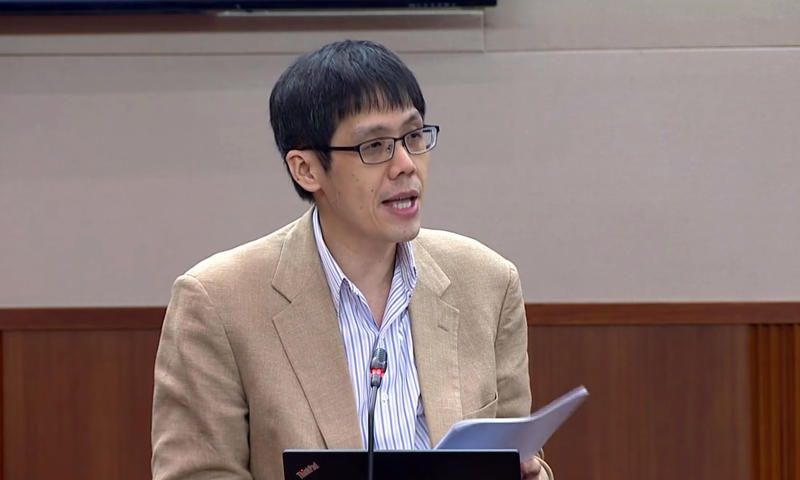Parliament: Difficult to distinguish between facts and opinions at times, say MPs
Sign up now: Get ST's newsletters delivered to your inbox

Nominated MP Walter Theseira urged caution in applying the powers of the proposed fake news legislation, which was being debated for the second day in Parliament on Wednesday (May 8).
PHOTO: GOV.SG
SINGAPORE - In 2017, the Ministry of Social and Family Development (MSF) gave data showing a sharp rise in people receiving ComCare aid between 2012 and 2015 and it led to an online comment that this was "the worst poverty result ever officially reported in Singapore".
MSF responded that this was "not true", explaining that the growth in ComCare recipients reflects more generous social welfare policies.
Nominated MP Walter Theseira view this as a difference of opinion based on the same facts and not a falsehood, so he urged caution in applying the powers of the proposed fake news legislation, which was being debated for the second day in Parliament on Wednesday (May 8).
The Protection from Online Falsehoods and Manipulation Bill gives ministers powers to order an individual to remove content that is deemed false or run a correction alongside it, among other things.
Dr Theseira, a transport economist from the Singapore University of Social Sciences, said he examined 170 cases of government action against online misinformation from 2015 to this year.
While he thinks a ministry should be free to make value judgments about criticism, including labelling criticisms as false, more caution is required to avoid the incorrect exercise of powers in the proposed Act, he added.
The Act applies to statements of facts, and does not cover criticism, opinions, satire and parody.
While the ministry must set the record straight, Dr Theseira said differences in opinion may arise because the public may have only partial information - as in the case of the ComCare aid in which changes in social welfare policy were not taken into account.
"We should not label such differences in interpretation as falsehoods, especially if the ministry has not released all the relevant information," he added.
Nominated MP Anthea Ong cited how sexual assault victims might feel uncomfortable sharing the full details with the police but could disclose important details later to case workers, counsellors and researchers.
"If the NGO (non-government organisation) grounds its recommendations to legislation on evidence from such accounts, would the Government reject the basis for such recommendations because the accounts do not align with their official records of those cases?
"Would the findings of the NGO be invalidated if they conflict with what the Government has on record as the 'facts' of the case?" she added.
Non-Constituency MP Dennis Tan noted that under the Bill, a statement is false if it is false or misleading, whether wholly or in part, and whether on its own or in the context in which it appears.
He said the definition of "misleading" might be too wide, and asked to whose standards it would be based. "For example, if I were to say something in good faith according to my own views, but what if the minister and even the court decide that it meant something else and is different from what I have explained?"
In response, Mr Murali Pillai (Bukit Batok) said the usage of "misleading" does not enlarge the scope of the Bill to include opinion.
"The way I read (it) is that the intention behind the usage of 'misleading' is to focus on statements of fact that weave truth with fiction, such that it creates a distorted statement which is false. In fact, the wording is essential to deal with the mischief this Bill is aimed at addressing," he added.


